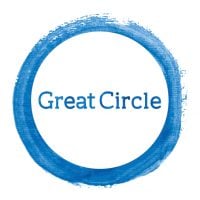Hopewell Center
Drug Rehab Center in Saint Louis, Missouri
Hopewell Center in Saint Louis, Missouri provides addiction and substance abuse treatment with a variety of services, including detox, medication assisted therapy, individual and group counseling, relapse prevention and recovery support, mental health clinic, life skills programs, and peer support services tailored to clients' needs.
About Hopewell Center in Missouri
Hopewell Center, located in Saint Louis, Missouri, is an addiction and substance abuse treatment facility with a mission to provide quality treatment and recovery support. This facility offers a variety of services, including detox and medication assisted therapy, individual counseling, group counseling, and evidence-based relapse prevention and recovery support. Clients also have access to an on-site mental health clinic, life skills programs and peer support services.
At Hopewell Center, clients receive comprehensive, individualized treatment plans tailored to their needs. The qualified professionals at the facility provide a wide range of counseling and medical services to help clients manage symptoms of addiction and withdrawal. Detox and medication assisted therapy combine medication and support to help reduce cravings and reduce the risk of relapse. Additionally, clients receive individual and group counseling sessions to work on underlying issues such as trauma and mental health concerns that may be connected to the addiction. Evidence-based relapse prevention and recovery support programs address triggers and coping skills to help clients maintain sobriety.
In addition to the services mentioned above, Hopewell Center offers unique programs to help clients in their recovery journey. These include an expressive arts therapy program where clients are encouraged to explore their inner thoughts and feelings through artistic mediums, as well as a well-being program that helps clients find activities to promote physical and emotional well-being. Additionally, Hopewell Center is accredited by the Joint Commission, and is licensed by the Missouri Department of Mental Health. They also received the Excellence in Clinical Care Award from the National Association of Addiction Treatment Providers in 2020.
Genders
Ages
Modality
Additional
Conditions and Issues Treated
When someone in struggles with both addiction and mental or emotional illness, this is considered a dual diagnosis. Dual diagnosis treatment can include therapy for these issues to happen simultaneously, which will allow either of them to be treated effectively.
Sometimes people who have suffered from addiction disorder also suffer from co-occurring disorders such as depression, anxiety, bipolar disorder, etc., making them “dual diagnoses.” Dual diagnoses require specialized treatment programs where drug and alcohol addiction are addressed along with psychiatric illnesses. Some rehabilitation facilities provide patients suffering from cooccurrences a program with highly integrated services and a clean environment with few distractions to help them succeed.
Levels of Care Offered
This center offers a variety of custom treatment tailored to individual recovery. Currently available are Dual-Diagnosis, Outpatient, with additional therapies available as listed below.
Outpatient treatment is often used for drug addicts in drug rehab. Outpatient treatment consists of counseling and therapy sessions. This form of treatment is also called ‘day-treatment’. The outpatient treatment process begins with the addict’s initial detox period, lasting about ten days.
Outpatient treatment is used for those who are at moderate risk for ‘slipping back’ into the addiction, for those who:
- Are not currently experiencing any side effects from withdrawal and can handle social pressure
- Can handle stressors that might trigger relapse
- Have a stable living environment or have moved out of their previous environment, which was not conducive to being sober
- Have a support system that allows them to go to a facility a few times a week while still keeping their current responsibilities
- Have no legal obligations, being either on parole or probation, that require them to seek treatment at a mandatory facility
- Are not currently experiencing any side effects from withdrawal and can handle social pressure
- Have a stable living environment or have moved out of their previous environment, which was not conducive to being sober
Therapies & Programs
Because no single treatment is effective for all addicts, the goal of treatment and therapy should be to figure out what works best for each individual. Tolerance and withdrawal levels differ from person to person, affecting the treatment intensity required. Addiction treatment should aim to help addicts develop healthy coping mechanisms for dealing with their addiction and its underlying causes.
Couples therapy works with clients and significant others in a professional capacity to improve relationship dynamics. This can be helpful for addicts who are trying to marry the idea of recovery into their work, family, social lives – any aspect that has to do with relationships. Through counseling sessions, addicts will have an opportunity to talk about their addiction with professional partners.
Family therapy is beneficial for people who are in addiction treatment services because it offers addicts the opportunity to work with their family members to better understand what led them to make choices that contributed to their addiction.
This type of therapy helps family members reach a deeper understanding of how they can best support their loved one during recovery. It also helps the addict better understand their own motivations and triggers that led them to turn to substance abuse.
Family therapy can help addicts in the following ways:
- Assists family members in processing difficult feelings so they don’t blame or resent recovering addicts
- Assists family members in understanding how addiction has impacted the addict and everyone who is involved with them
- Allows the addict to take responsibility for their actions, while encouraging improved communication skills
- Helps family members understand how to best support an individual in recovery so addicts don’t relapse again.
Group therapy can help build a stronger support system and give addicts in Saint Louis, MO insight into their addiction that they gain through shared conversations. Group therapy occurs in a controlled group environment, exclusive of one on one meetings. This makes it safer for patients to feel comfortable sharing the struggles they’re going through and gaining perspective.
Trauma therapy is beneficial for people who are recovering from drug addiction because it helps them heal from past traumas that may have caused them to turn to harmful substances or led them to experience negative emotions that contributed to their destructive behaviors.
This type of treatment works by processing difficult experiences so individuals can learn how to process these events without having to turn to substances for coping.
Trauma therapy can help addicts in the following ways:
- Helps individuals understand their experiences and emotional responses to difficult events, including why they turned to drugs or alcohol
- Provides them with comfort and support while working through difficult emotions related to these traumatic experiences
- Offers an opportunity for addicts to have a voice and be heard, which can improve their self-esteem
- Can help them develop coping skills so they can better respond to triggers instead of turning to substance abuse.
Dialectical Behavior Therapy (DBT) is a cognitive-behavioral therapy that helps patients understand the relationship between their thoughts, feelings, and behaviors. It is beneficial for those whose addictions and behaviors stem from severe mental health issues. The term “Dialectic” means the integration of opposites. In substance abuse, DBT refers to accepting the patient’s addiction and working to change their thoughts and behavior. It improves life skills such as controlling intense emotions without reacting impulsively, resolving interpersonal conflicts effectively, and promoting awareness about self and others.
Cognitive-behavioral therapy is a technique that is used to help people with addiction. Specifically, it is a way of identifying thoughts and behaviors that cause the addiction. It is typically used in an individual counseling session.
The content explains cognitive behavioral therapy and how it works to address some behaviors that may be leading to unintended consequences in their life, as well as its benefits for those seeking sobriety.
It works by helping people to talk through their issues and addressing the thoughts that cause said behaviors. It is an excellent way of learning about oneself and one’s perception of the world.
Patient Experience
Experiential Therapy at Hopewell Center
Experiential therapy uses engaging activities to help patients access deeper, often hidden emotions. For example, the patient could role-play a problematic situation or engage in activities like drawing, painting, poetry writing, music composition, exercising, or journaling to help process intense feelings.
Experiential therapy is a type of therapeutic approach that focuses on having patients work through problems, issues, or emotions by engaging directly in some real experience. Experiential therapy occurs face-to-face with a therapist who helps these people to explore their feelings first hand.
It is based on the belief that to truly understand and gain insight into oneself and behavior; it is necessary and helpful to have real experiences with the issues involved. Some therapists have developed the experiential therapy approach as a way of treating addictive behaviors or dealing with impulses related to addiction. It comes from an existential school of psychotherapy called ‘experiential existential.’
Payment Options Accepted
For specific insurance or payment methods please contact us.
Is your insurance accepted?
Ask an expert, call (888) 674-0062
Additional Details
Specifics, location, and helpful extra information.
Saint Louis, Missouri 63112 Phone Number(314) 531-1770 Meta DetailsUpdated November 25, 2023
Staff Verified
Hopewell Center Patient Reviews
There are no reviews yet. Be the first one to write one.
Saint Louis, Missouri Addiction Information
Opioid-related overdoses in Missouri have been increasing steadily for the past three decades. In 2018, more than 1,130 people in Missouri died from opioid abuse. Methamphetamines and marijuana abuse have surpassed opioid abuse in Missouri. Missouri is the number 1 methamphetamine manufacturer in the country with more than 27 meth labs per 100,000 people.
Saint Louis, Missouri, has a severe drug addiction and abuse problem. In fact, according to recent statistics, Saint Louis ranks in the top 10% of cities in the United States with the highest rates of drug abuse. Some of the most commonly abused drugs in Saint Louis include cocaine, methamphetamine, and heroin. Some types of treatment available in Saint Louis, MO, include detox, inpatient treatment, outpatient treatment, and 12-step programs.
Treatment in Nearby Cities
- Lexington, MO (197.1 mi.)
- Doniphan, MO (143.3 mi.)
- Smithville, MO (236.6 mi.)
- Saint Charles, MO (15.1 mi.)
- Perryville, MO (67.9 mi.)
Centers near Hopewell Center
The facility name, logo and brand are the property and registered trademarks of Hopewell Center, and are being used for identification and informational purposes only. Use of these names, logos and brands shall not imply endorsement. RehabNow.org is not affiliated with or sponsored by Hopewell Center.









